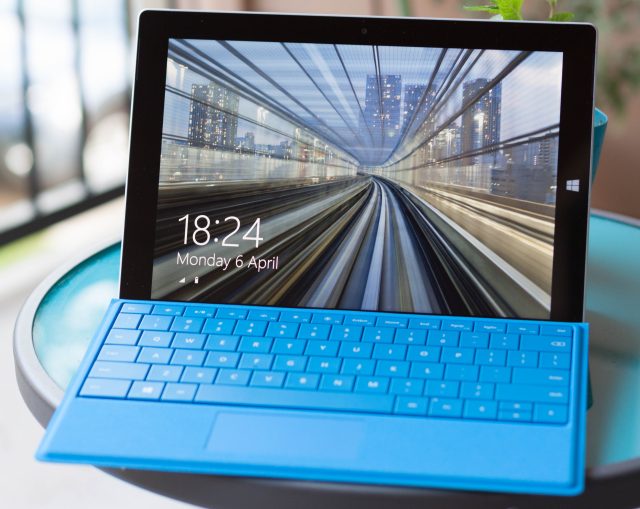
Microsoft's Surface 3 impressed us when it launched last spring. It's a smaller, cheaper iteration of its Surface Pro concept, and this setup struck us as a pretty compelling mix. But there are signs that the device is not long for this world. Brad Sams at Thurrott.com writes that many versions are listed as out of stock in Microsoft's online store, with no expected availability. Online, only the 2GB RAM/64GB storage/LTE version is in stock.
In-store stock levels show a bit more availability, but the Surface 3 remains limited, with only some configurations on offer.
This kind of shortage at this stage in a device's life is generally an indication that manufacturing is slowing down or stopping entirely, and evidence points to this possibly being the case. In a statement, Microsoft said:
Since launching Surface 3 over a year ago, we have seen strong demand and satisfaction amongst our customers. Inventory is now limited and by the end of December 2016, we will no longer manufacture Surface 3 devices.
Usually, we see this type of slowdown as a company prepares for the launch of a new or updated device. Thus far, however, there hasn't even been the merest hint of a rumor about such a device. Intel's processor lineup also poses some difficulties in this regard. The Surface 3 uses a Cherry Trail Atom processor, and there have been no major upgrades or replacements for those processors since they were released in the first quarter of 2015. Without new processors, there's little reason to update the Surface 3 line.
But it doesn't appear that Intel will be replacing the Atom x7 series used in Surface 3 anytime soon, if ever. The Atom x7 processors in Surface 3, using the Airmont core, were originally due to be replaced by the "Broxton" family with a new Goldmont core. But earlier this year, Intel cancelled some of its planned Broxton processors as it scaled back its investment in phone and tablet components. Some Airmont parts have been announced, but they have all been aimed at low-end desktops and laptops with processors in the 4-6 watt space, not tablets with 2W processors as Surface 3 is. As such, the x7 processor in Surface 3 represents the end of the line.
Intel's other low-power processor line, the Core M parts, would represent a substantial performance upgrade. The cheapest of the Surface Pro 4 systems uses a Core M, and it's markedly faster than the Surface 3. But it's also markedly more expensive: the Atom chip in the Surface 3 has a recommended price of $37. For Core M, the asking price starts at $281. (Intel only ever provides suggested retail prices in dollars.) With Surface 3 prices starting at $499, that kind of processor upgrade would have huge implications. It would either push the price way up or bump the quality way down. Even Pentium-branded parts, which are positioned as budget offerings, cost $161.
If Intel processors don't fit the bill, it's not really clear that anyone else's do, either. Microsoft has partnered with AMD for the processors in the Xbox One, but AMD has nothing to offer in this same kind of $40, 2 watt space. With Intel and AMD both out of the picture, this leaves only ARM processors. The Surface and Surface 2 both used ARM processors, to their tremendous detriment. Those processors left the devices incompatible with the overwhelming majority of Windows software. This problem is just as acute today as it ever was, so it's hard to imagine Microsoft ever going back to ARM for its tablets.
This same hole in Intel's processor lineup may also be an issue for the HoloLens. The development edition of Microsoft's augmented reality headset uses a Cherry Trail Atom processor. With that an evolutionary dead end, it raises questions about Microsoft's future plans for this kind of hardware.
The final option, if Microsoft does indeed stop building Surface 3s, is for the company to simply abandon the segment entirely. Continue to iterate the Surface Pro line—Intel should be releasing the successor to the current Skylake processors, called Kaby Lake, later this year, creating an opportunity for a new hardware revision—and leave the low end to third parties.
reader comments
132